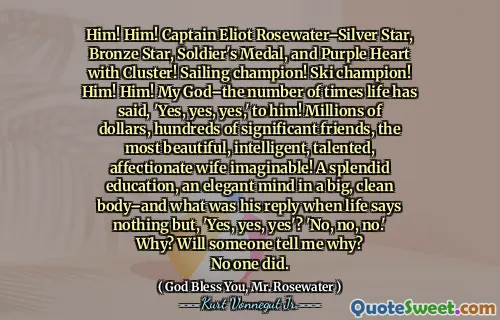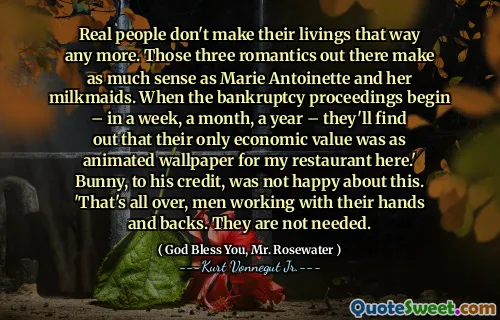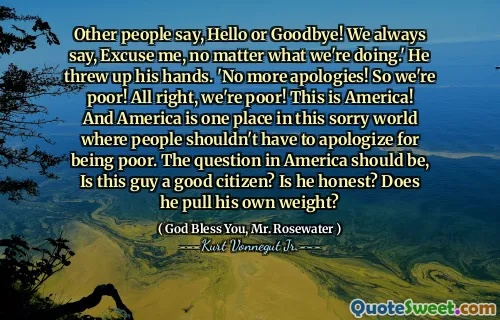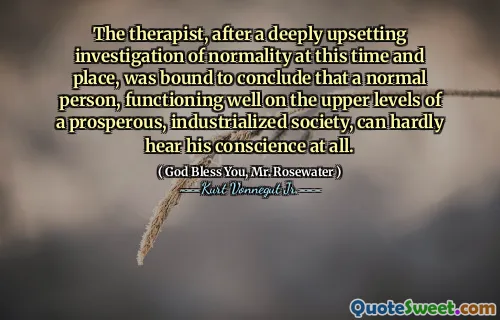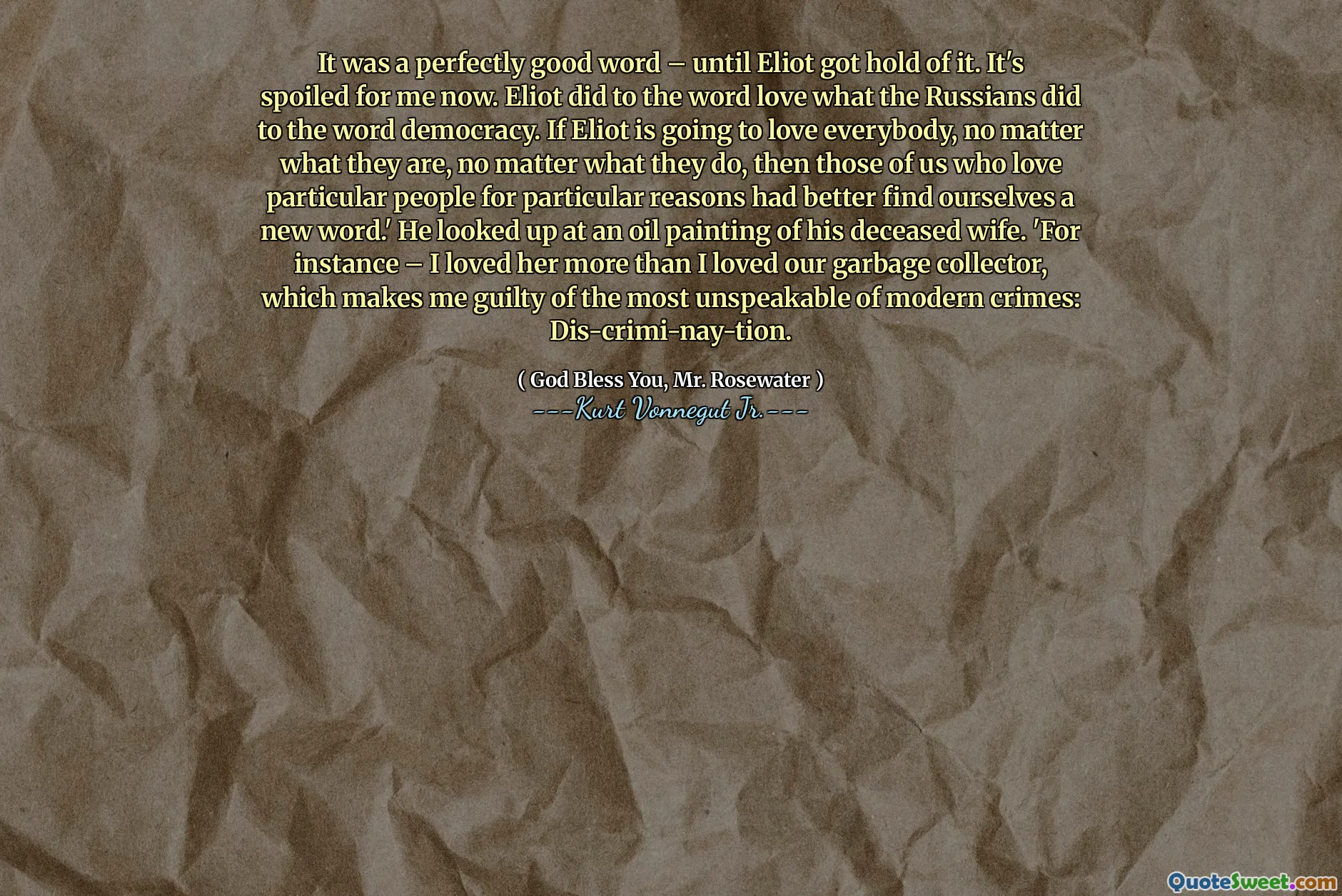
It was a perfectly good word – until Eliot got hold of it. It's spoiled for me now. Eliot did to the word love what the Russians did to the word democracy. If Eliot is going to love everybody, no matter what they are, no matter what they do, then those of us who love particular people for particular reasons had better find ourselves a new word.' He looked up at an oil painting of his deceased wife. 'For instance – I loved her more than I loved our garbage collector, which makes me guilty of the most unspeakable of modern crimes: Dis-crimi-nay-tion.
The quote expresses frustration over how the word "love" has been diluted by unrestricted usage, particularly by T.S. Eliot. The speaker feels that Eliot’s broad interpretation of love undermines its depth and meaning. He compares this to the way the term "democracy" has been manipulated, suggesting that true love is specific and personal, tied to individual relationships rather than an all-encompassing sentiment.
Reflecting on his own experiences, the speaker recalls the love he had for his late wife, which he values deeply. He recognizes that loving someone specific, as opposed to loving universally, leads him to face societal judgments of discrimination. This personal connection to love contrasts sharply with the generalized love promoted by Eliot, highlighting the complexities of emotional expression in modern society.
